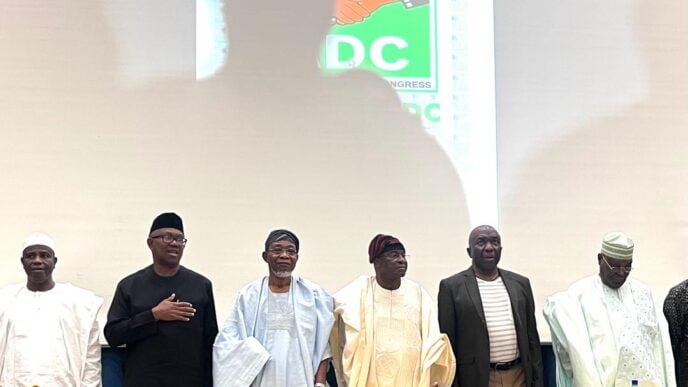BY MICHAEL ADEDOTUN OKE
The escalating cost of essential foodstuffs in Nigeria constitutes a national crisis demanding immediate, structural intervention. While macroeconomic factors certainly contribute, a major, often overlooked implication is the direct connection between the high cost of agricultural inputs (seeds, fertiliser, and machinery) and the subsequent unaffordability of food for the average citizen.
This analysis highlights the deep concern arising from the profit-driven imperative of farmers colliding with the inconsistent, confidence-eroding nature of government subsidy distribution.
The Farmer’s Imperative vs Food Affordability
Advertisement
It is a necessary truth that the primary objective of any farmer, operating within a commercial market, is the pursuit of solid profit margins. This necessity drives the high cost of food. When farmers face spiralling expenses for essential production inputs, the price of the final produce, be it grains, tubers, or livestock, must logically rise to maintain viability.
The standard of reason supervising the current high cost of food is therefore simple: the rising expense of production must be passed on to the consumer. For the farmer, failure to achieve this profit margin threatens their livelihood and future output, leading to reduced investment and cyclical scarcity.
The Implication of Policy Inconsistency
Advertisement
The most significant factor undermining affordability is the inconsistent and unreliable implementation of government support programs, particularly concerning agricultural input subsidies.
There is a severe lack of required policy confidence in the agricultural sector due to the failure of government mechanisms to ensure the continuing discipline of distribution of agricultural input subsidies. Subsidies intended to significantly reduce the cost of production are either poorly funded, misappropriated, delayed, or fail to reach the genuine smallholder farmers who need them most.
This absence of sustained, disciplined support forces farmers to purchase inputs at exorbitant market rates. The original intent of such intervention to serve as a reliable, predictable system reducing production cost is significantly diminished, forcing the market price of food to remain arbitrarily high.
Grave Side Effects on Nigeria: Food Security and Availability
Advertisement
The implication of this policy-to-market disconnect is grave, manifesting in two critical areas:
1. Compromised Food Availability
High production costs constrain output. When farming becomes too expensive or risky, many smallholders scale down operations or abandon them entirely. This directly limits the overall supply of domestic produce. This reduced food availability forces Nigeria to rely increasingly on imports, placing further strain on foreign exchange and exposing the populace to global price volatility.
2. Erosion of Food Security and Nutritional Integrity
Advertisement
For the majority of Nigerians whose wages have not kept pace with inflation, the high cost of food translates directly into food insecurity and compromised nutrition. Families are forced to make difficult dietary choices, often substituting nutrient-dense, high-cost food (like protein and fresh produce) for cheaper, carbohydrate-heavy alternatives.
This side effect is a social time bomb: it fuels malnutrition, stunts development in children, increases susceptibility to disease, and contributes to socio-economic distress and potential unrest across the nation.
Advertisement
Conclusion: Appointing the Mind of Policy
The crisis of food security in Nigeria is not merely an economic problem; it is a profound failure of consistent, disciplined governance in the agricultural sector. The best grace for the government to begin to effect change is to appoint its mind in a position of positive commitment—meaning a non-negotiable, transparent, and disciplined mechanism for subsidising and distributing key agricultural inputs.
Advertisement
We must shift the policy focus from sporadic intervention to continuous, reliable confidence-building. Until the government successfully and consistently drives down the bottom-lands cost of farming, the high cost of food will remain the tragic, logical consequence, condemning millions to the threat of hunger.
Michael Adedotun Oke, executive director, Michael Adedotun Oke Foundation, can be contacted via [email protected]
Advertisement
Views expressed by contributors are strictly personal and not of TheCable.













